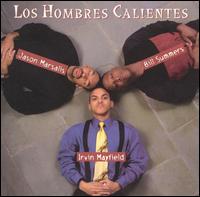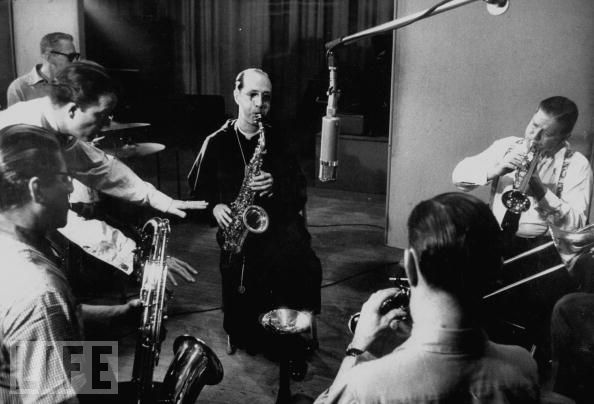
Sometimes you just have to rock the home town! 24/96 FLAC.

Sometimes you just have to rock the home town! 24/96 FLAC.

Saturday Morning with a great cup of coffee.
Great record and a young, stunning Audrey Hepburn.
:format(jpeg):mode_rgb():quality(40)/discogs-images/R-7033445-1432142566-1466.png.jpg)

In honor of the Mosaic discussion and as recommended by Lonson: Disc 1 on the deck. A glorious sun kissed spring day in Chicagoland.

The greatest compilation of country music ever: 1945 to 1970. Thank you Bear Family.
More from the new May '77 box set from the Grateful Dead. 5/5/77, second set again. Some great playing that night!

In honor of the final weekend of the New Orleans Jazz and Heritage Festival.

Been meaning to revisit the Lennie Niehaus material and so starting at the beginning.

Maroon V: Overexposed.
I’m really a serious classical guy, but I like to branch out, so I check out from the library stuff that I’m vaguely aware of, as a cautious nerd dipping my toes into popular culture.
Gotta say, Overexposed is totally awesome! Curious bouncy melodies, great percussion, catchy refrains, very articulately enunciated lyrics (rare for me to be able to understand lyrics so readily). I’m planning to buy the CD.
One of the intriguing properties is the way Levine’s singing seems to have extraordinary, conspicuous pitch accuracy despite a variety of exotic vocal techniques. I’m wondering, is there a way to tell if Auto-Tune has been used?

Lots of life wrecking my listening plans this weekend. I get to squeeze this in before bed and another killer week of work.
Nobo said I'm wondering, is there a way to tell if Auto-Tune has been used?If applied with discretion and the error to be addressed is relatively small it is difficult to detect.
Listen for a slipperiness to the sound. I cannot think of a better way to describe it. Held notes often have a monotonous, too smooth, feel.
Also, once can set the amount of allowable portamento pitch inaccuracy. Unless these parameters are precisely set to the performer stylistically you can hear the software challenge the performer.
Elk saidAlthough "slipperiness" is difficult to grasp, I can see that a tone without intrinsic variation loses traction when heard. And interestingly, on Levine's longer notes there has been additional micro-manipulation like a crescendo of reverb or seemingly some machination with the harmonics, restoring interest. My listening skills are questionable, but I wonder if on shorter notes Levine attains the exact pitch from the very start, without any nanosecond of adjustment. Perhaps somebody worked very studiously to buff up this album; or Levine is just a very accomplished vocalist (it's hard to generate your own reverb when singing--try it).Listen for a slipperiness to the sound. I cannot think of a better way to describe it. Held notes often have a monotonous, too smooth, feel.
All of which brings up another contentious topic: if on a recording the voices are modified and none of the instruments are acoustic ones, so that everything heard is somewhat arbitrary and without universal standards for comparison–does it make any sense to talk about the reproducing accuracy of one’s fancy hi-fi equipment?
:format(jpeg):mode_rgb():quality(90)/discogs-images/R-2541360-1355240638-1386.png.jpg)

A photo of the recording session

Love this LP
Alto Saxophone – Brother Matthew
Baritone Saxophone, Clarinet – Ernie Caceres
Bass – Bob Casey
Clarinet – Pew Wee Russell
Conductor – Eddie Condon
Cornet – “Wild Bill” Davison
Drums – George Wettling
Guitar – Paul Smith (79) (tracks: A5, B1, B3)
Piano – Gene Schroeder
Trombone – Cutty Cutshall
Record 2 (which is “Mingus Dynasty”)

I don’t know what an original pressing of this album would sound like but this reissue from '71 sounds pretty darned good.
This just arrived, the “Record Store Day” deluxe release (in June it will come out as a much cheaper 2LP and even cheaper 2CD set from Resonance Records.
Wow, this is a beautiful set, LP sized box with two LPs and a 48 page booklet packed with color photos that I’ve never seen before. Sound is excellent. I wasn’t going to get this and wait for the cd set next month, but was pointed to an opportunity online to get it for the list price and free shipping (ebay prices are already wildly high!) Glad I did get it as I’m a Monk AND a Barney Wilen fan.
Nobo saidAll of which brings up another contentious topic: if on a recording the voices are modified and none of the instruments are acoustic ones, so that everything heard is somewhat arbitrary and without universal standards for comparison–does it make any sense to talk about the reproducing accuracy of one’s fancy hi-fi equipment?
But, while it makes little sense to me, I have found those who know a given pop record well can readily determine which system is better. I put on a recording I know and agree with them. ![]()
Now the second LP from the Record Store Release “Les Liasions Dangereuses”. . . wow. It’s exciting to have new Monk from '60, and with Wilen.
